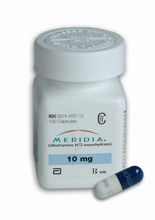Lose Weight > Weight Loss Tips > About Tips > Common Sense Healthy Weight Loss Plan - Free Weight Loss Plan
Common Sense Healthy Weight Loss Plan - Free Weight Loss Plan
America is now in the middle of a health crisis of tremendous proportions. Millions of Americans are now overweight and a very significant number had already been classified as obese. Obesity is now a major health concern in America, which has already become a fast food nation.
The saturated fat intake from processed meat and packaged foods has caused major health problems that include diabetes, stroke, hypertension, and cancer. Other negative effects brought about by obesity and being overweight include low-self esteem, depression, and discomfort in being in middle of situations where there is a need for social interaction.
Needless to say, losing weight must be seriously considered by millions of Americans if they still want to maintain their health and avoid the various illnesses associated with weight problems. Perhaps, one way to convince overweight and obese people to lose those extra pounds is to emphasize the following remarkable benefits of losing weight: l Weight loss helps lower blood pressure in overweight persons.
l Weight loss helps lower elevated blood glucose levels in obese persons with type 2 diabetes.
l Weight loss helps lower the individual's chances for developing diseases such as stroke among others.
l Weight loss helps decrease inflammation in the body.
Now that the benefits of weight loss have been identified, the next question is: How do I lose weight?
One of the very basic things to do to lose weight is to engage in regular physical activities that will help you burn fat. Physical exercise that lasts for 30 to 45 minutes a day, done three to five times a week is sufficient. Having a sensible eating plan that consists of low-fat, low calorie meals is a must.
Getting help from health professionals is also highly recommended. With the help of a nutritionist-dietitian, you can get your body mass index (BMI) or waist circumference measured. The weight and waistline are two of the priority measurements to determine a person's physical fitness level.
But since most weight watchers have problems with keeping themselves in the program, it may be useful to take note of the following recommendations that would help you to effectively manage your weight:
1. Write it down Keep a diet diary, write your progress. Take note of every meal that you eat.
2. Exercise Exercise burn calories and fat. Focus on exercises that target the abdomen, thighs, and buttocks --- which are body parts that are most prone to fat accumulation.
3. Schedule your workouts - Set aside time for an exercise program and stick to it. Once you have a routine, it'll be hard to kick the habit.
4. Watch what you eat -Don't eat too fast and don't think that all non-fat" food is good for you. Aside from making sure that your meal is non-fat, it is also recommended that you make sure that the caloric content of the meal is within your limit.
5. Stick to mini-meals Instead of eating three big meals a day, choose to take small but frequent meals. Small, frequent meals help normalize your blood sugar level.
6. Drink lots of water- Drink at least eight glasses of water a day which is important for keeping your body hydrated. Water also helps in flushing out the body's toxins and impurities.
7. Take the stairs - As much as possible, use the stairs instead of the elevator or escalator. Climbing the stairs is good workout for your heart.
8. Make a commitment It is important to be committed to do regular exercise and follow a low-fat, low-calorie eating plan. Lack of discipline is almost always at the root of weight problems and other health concerns.
9. Keep your emotions at bay - Most of us tend to eat a lot when we have emotional problems. Maintaining a positive attitude and avoiding food binges as a means of coping with anxiety.
10. Eat low-calorie alternatives- When making a food choice, it is important to check for the caloric content and other ingredients that may pose adverse effects on your weight loss plan. Avoid the temptation of buying food just because they taste good." As a weight watcher, you should consider the health benefits that can be derived from the food you eat.
Related Articles
-
वज़न घटाने का नुस्ख़ा #8: अपनी आहार योजना बनाकर उसका पालन करें
-
Why Weight Loss?
If the header makes you wonder, read on - it should make you wonder -
-
Keeping Fit Is So Simple With These Proven Strategies
It can be very difficult to find straightforward, easy-to-understand
-
Secrets from Weight-Loss Spas
Healthy Eating Tips from Top Weight-Loss Spas The One Number to Read o
-
Get Toned By Strong Will Power
Are you planning to shred extra pounds which make you look ugly?? Gon
-
The Loss Of Hair Secrets The Pros Don’t Want You To Know
For the most part, human beings have a history of problem solving
- DON'T MISS
- Avoid All Quick Weight Loss Diets - If You Want To Burn Fat!
- Weight Loss Tip #125 – A cup of coffee before workout helps you lose more weight
- Weight Loss Stalled? Get A Jump Start Here!
- 10 Cats GIFs That Summarize Your Workout Pain
- Avoid Becoming An Emotional Overeater To Keep An Effective Weight Loss Plan
- Tips For Losing Weight Without Diet Pills
- Do Weight Loss Pills Really Work?
- Biggest Loser Season 4 Premiere
- Weight Loss Tip #61: Do sit-ups and crunches to lose belly fat
- How to Increase Your Metabolism




